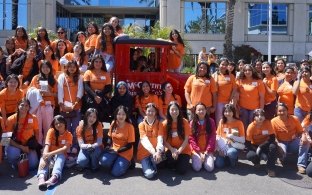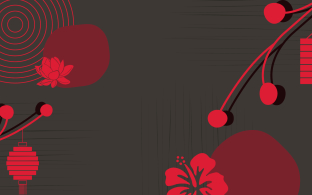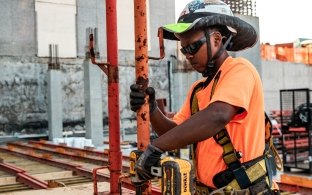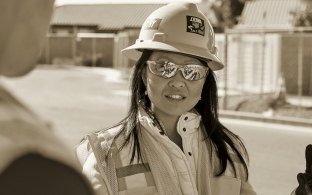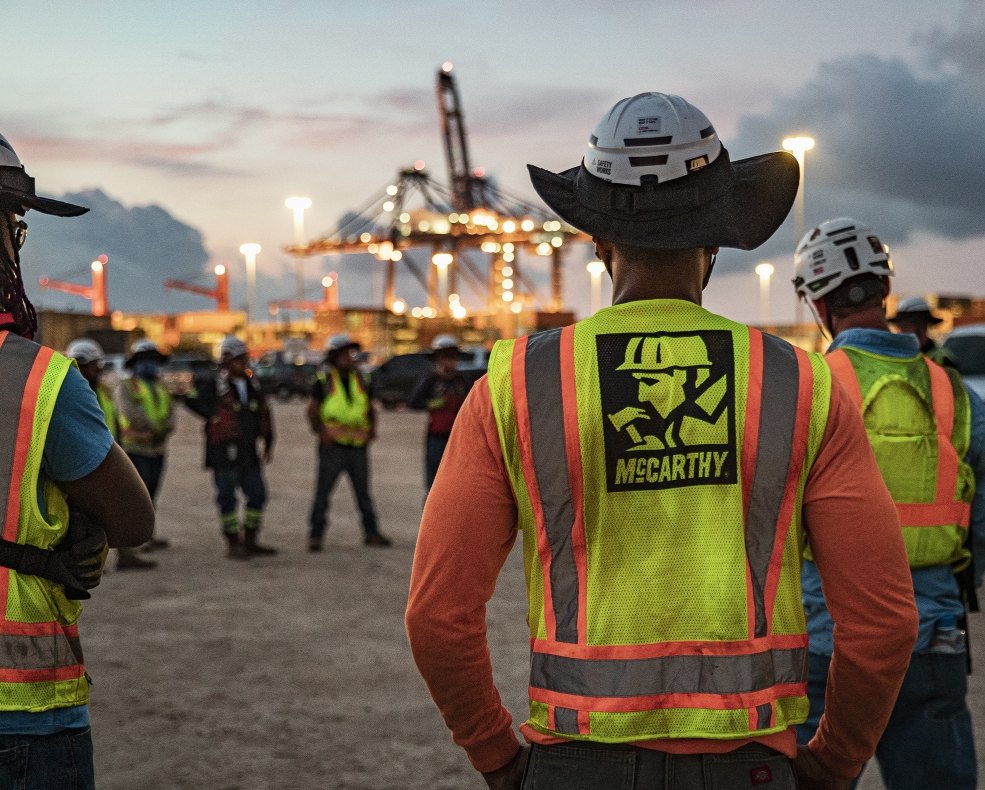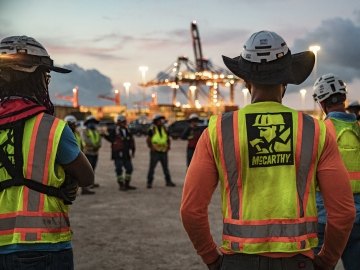AAPI Month Spotlight: Jackie Rivera
Helping us celebrate Asian American Pacific Islander Heritage Month in May is Project Manager Jackie Rivera, who shares her unique experience, perspective and culture.
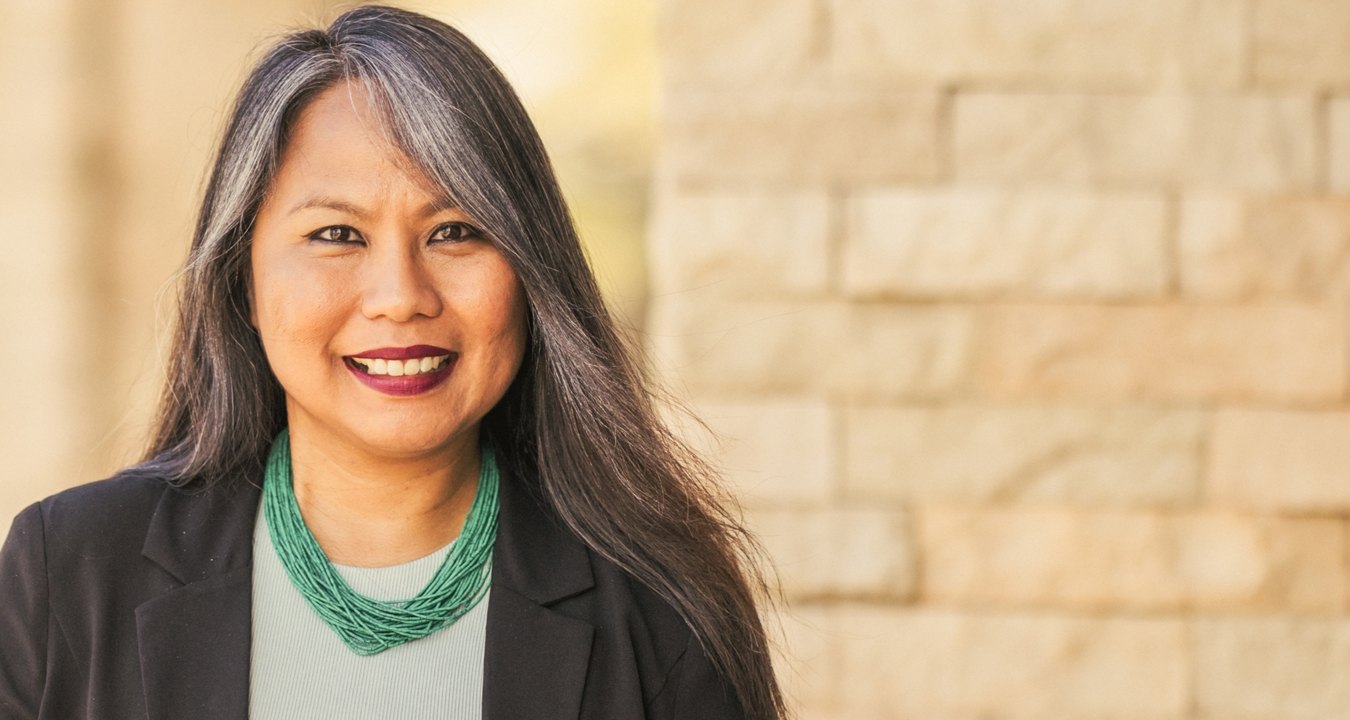
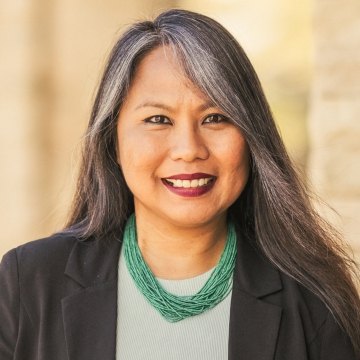
Mabuhay! My journey to a construction career began on Mindanao, the second largest of the more than 7,100 islands that make up the Republic of the Philippines.
Before I continue, I must share the immense pride I have in my country of birth and our Filipino culture.
We’re a country of helpful people! We are willing to give the clothes off our backs to help others and because we have limited resources, we are able to take other people’s throwaways and turn them into useful things. We can solve anything over food and laughing while telling jokes and singing karaoke.
Nearly 30 typhoons hit the Philippines every year — and that’s why we are such a resilient people! When your house gets destroyed, you build it back again — as a community.
The importance of family and culture
My grandmother on my mother’s side, Celeste Orqueza, was an orphan with no formal education. She still found a way to raise my mother, Teresa, and nine other children while also running a rice cake business out of her home!
My father’s side was just as interesting. My grandfather and three of his brothers all served in World War II, commanded by U.S. General Douglas MacArthur.
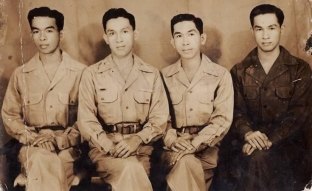
My father Reuben was born in the middle of a rice field in 1943 during the Japanese invasion of our island. He is a civil engineer and one of six engineers in his family. That was my biggest influence to go into engineering and construction, though it took me a while to get there.
I grew up in Iloilo City and instead of engineering, I got a scholarship from the largest bank in the Philippines. They said if you take accounting, we’ll pay for it — so I jumped ship.
I’m the oldest of three children. My sister Joan is a civil engineer and my brother Rey Ben is in business and marketing.
In the U.S. we call it a “vegetarian diet.” In the Philippines we called it the “poor man’s diet” because it was so expensive to buy beef or any kind of meat there. Our diet was often restricted to vegetables and fish, all because it was cheaper.
Everything we ate had to have rice, even our desserts were something with a sweet form of rice. We also had cakes, hamburgers and pizza, but those were typically only on birthdays, special occasions or holidays.
Every town had its own unique fiesta to celebrate their patron saint.
There were no drive-thrus, and definitely a lot of walking had to happen. Every day, someone had to go to the farmer’s market, pick out fresh food and bring it home so we could cook it.
The Philippines served as an American naval base, so that led to lots of Jeeps of various ages being left all over the place. It also led to our fun custom of colorful Jeepneys!
Our people pretty much copied what the Jeep looked like, making a Jeepney out of sheet metal and a chassis from used vehicles. We’d find something, then make it something new and different because nothing is ever wasted in third-world countries. You still see them all over the Philippines since they are the most popular means of public transportation.
Now I live near Sacramento, Calif., with my husband, Miguelangel, and our children Kobe and Gianna. If you are wondering about those names, my husband is a really big L.A. Lakers fan, but my sister is Joan and Gianna is Joan in Italian.
I have been to 30 countries. My son is 14 and has already been to 20 countries. I have well-traveled children because I think if they see the world, they will learn about other people and see things in a different perspective.

Representing my country
While you may never have heard of a dragon boat competition, I once learned the sport in three months and was able to represent my country at the 2007 International Dragon Boat Federation event in Australia!
A dragon boat is a narrow canoe, roughly three feet wide, that holds 20 people. That includes nine paddlers on each side whose strokes are in rhythm to a drummer in the front of the boat, with a single steersman in the back.
This is the best team-building and best leadership exercise ever. It’s not about the strongest, the bulkiest or the skinniest, but it’s all about moving in unison, in the same direction, following the beat of the drum.
This was a long-distance competition at 1,000 meters, but I still raised my hand and said, “If you train me, I’ll do it!”
We finished ninth out of 19 countries and the time difference between us and the champions was a mere three seconds.
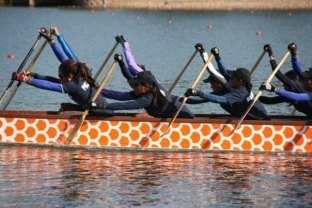
A lifetime of opportunities
My college training was in business and accounting and my master’s was in business management. One of my first jobs was as a bank manager, but I still wasn’t sure what I wanted to do.
Did I want to give up what I was trained for to pursue the American dream? It required me to completely immerse myself into a totally different industry and start out with what was available at that time, but I did it because I believed in a better way of life.
As a result, I moved to the U.S. and got a job as a project quality coordinator in Houston. The company I worked for designed, built and exported offshore and onshore drilling rigs.
In so many ways, it was a culture shock. We had to be in at 5 a.m. and leave at 5 p.m. and I was used to the more traditional hours in a bank. There, you dressed nice and you smelled good. Then I went to being stuck in an industrial warehouse turned into an office next to the coffee machine and the welders.
Even though I spoke English, the people I worked with had a very strong Louisiana/Texas southern accent and sometimes they’d talk really fast. I always found myself asking them hey, can you say that again, please? The Filipino language has more than 100 dialects. I speak three of them, so English is my fourth language (and Spanish my fifth).
From there, I went to work as a project coordinator for a small business firm in Los Angeles that did construction and building maintenance.
I made the decision to open my own construction company in 2013 and ran Alliance Construction for seven years, competing against my former employer.
We moved dirt, washed buildings and painted schools — and I really wanted us to become a trade partner for a general contractor. I eventually met Ileana Holguin at a NAWIC (National Association of Women In Construction) event and she introduced me to people at McCarthy.
When COVID happened, Alliance shut down and I could not sustain the business anymore. Instead of waiting for COVID to evaporate and business go back to normal, I decided to go back to the workforce.
Even when I was looking for a job, I asked some fellow trade partners I worked with which GCs they'd worked for that treated them the best — and McCarthy was the resounding answer I heard.
Another GC was ready to schedule me for an interview, but McCarthy gave me an offer and I knew what I wanted. Four years later, here I am!
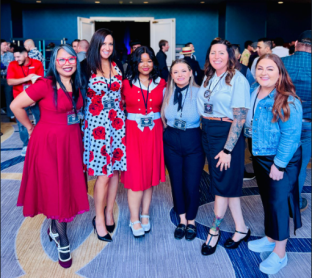
A culture unlike any other
I was impressed by the McCarthy culture well before I became an employee. When I first stepped into a McCarthy office as a trade partner, I saw the sign with the core values: Genuine; All In; We, Not I.
My experience as a small business owner has helped me become a much better project manager at McCarthy because of the way we engage our trade partners. Trade partners are like family members because we make them feel valued and respected.
I enjoy being able to work with our young project engineers and tell them to treat each job as if it were their own business. There’s a bigger purpose here. We serve a client; we give it our best shot to make them happy and have repeat business. You have to think about it that way.
I really enjoy my current role with a very diverse team at the UC Davis Replacement Hospital Tower in Sacramento. More than 30 percent of the full project team, including designers, owners and contractors, are women.
Right now the UCD RHT McCarthy team is prepping the existing site and building to meet the new tower. We surgically removed the precast panels and are putting in a new two-hour wall without any disruption to current hospital operations in four important departments.
We build things that change lives. It also changes our lives, because now you’re building for a higher purpose.



